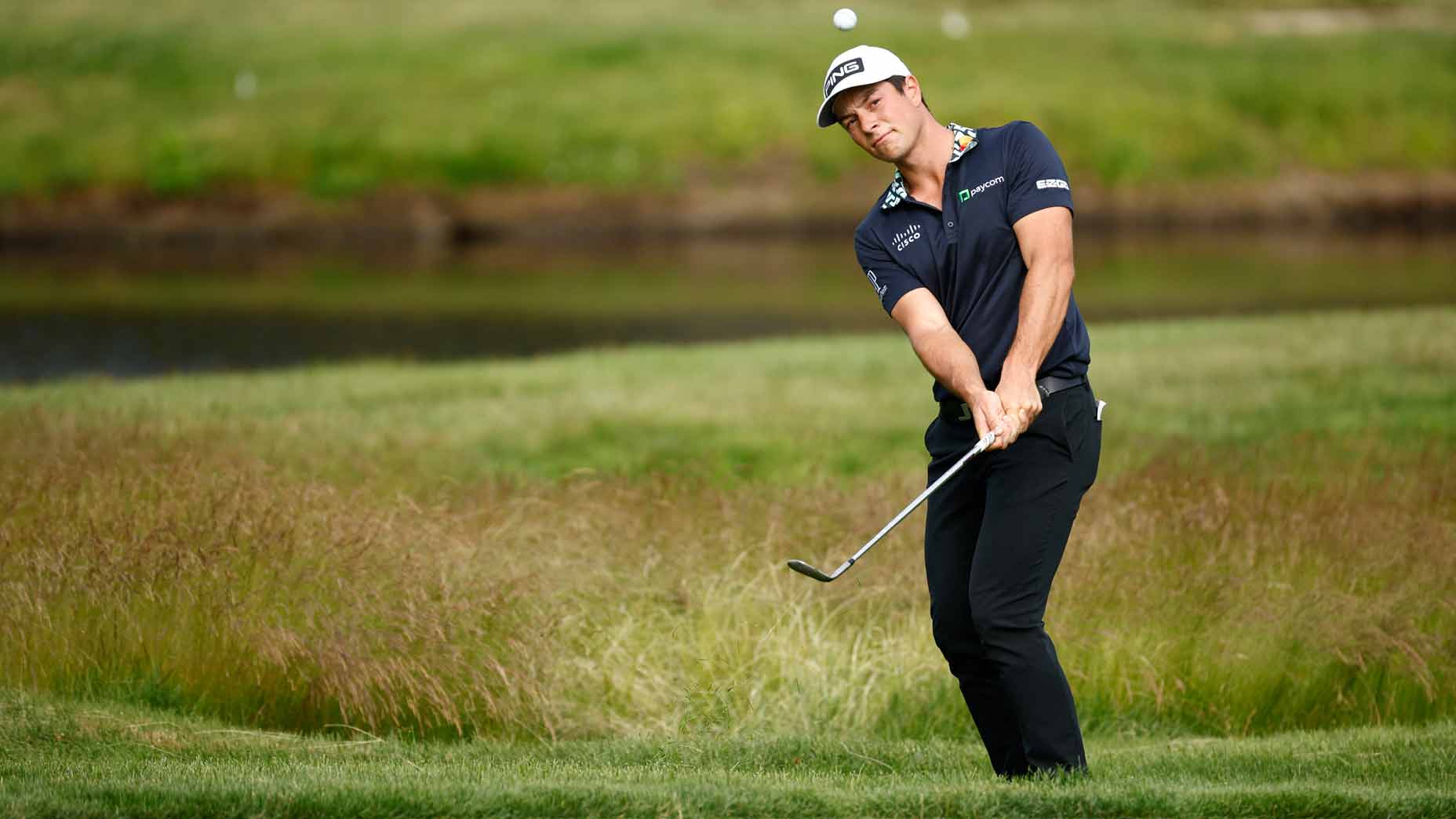If you want to become a scratch golfer (or better), you need to dial in your short game. Sure, sending the ball 300 yards down the fairway and hitting lasers at pins are important skills, but nothing can a sharp short game is essential.
Even the best players in the world miss greens. Last year, PGA Tour players hit, on average, 66.32 percent of their greens in regulation for the season. Want to know how they still kept their scores so low? That’s right, with their short games.
When pros are out of position around the greens, they always seem to have a trick up their sleeve to get the ball close. They hit shots that most of us can only dream of, and they make them look oh so simple.
Some of that is due to experience, but there’s also a move that pros use in the short game that helps promote crisp contact. In the video below, instructor Mark Immelman explains how it works.
The key move for crisp pitch shots
If you want to generate spin around the greens, the first step is making solid contact with the ball. Like with a full swing, you want to make sure you’re hitting the ball first and then the turf. And to put yourself in position to generate that contact, you want your head to move slightly forward and slightly down during the backswing.
“That creates an environment where you can compress balls,” Immelman says. “Make ball-then-turf contact, yet still shallow the strike.”
Remember how Viktor Hovland struggled so much with his short game early in his career and then made huge strides in 2023? Well, the key to that improvement was a focus on this move in his own short game.
How to execute
During the setup, you want to make sure you have pre-loaded a bit of pressure into your lead side, and that your hands are slightly ahead of the clubhead. On the backswing, keep the clubhead low and allow your torso to drift slightly toward the target.
When you reach transition and start the downswing, your head should move slightly upward, which will allow the clubhead to shallow as it comes into the ball. Then, simply make a balanced turn toward the target to stick the finish.
“This is truly magnificent,” Immelman says. “[And] it’s easily repeatable.”
